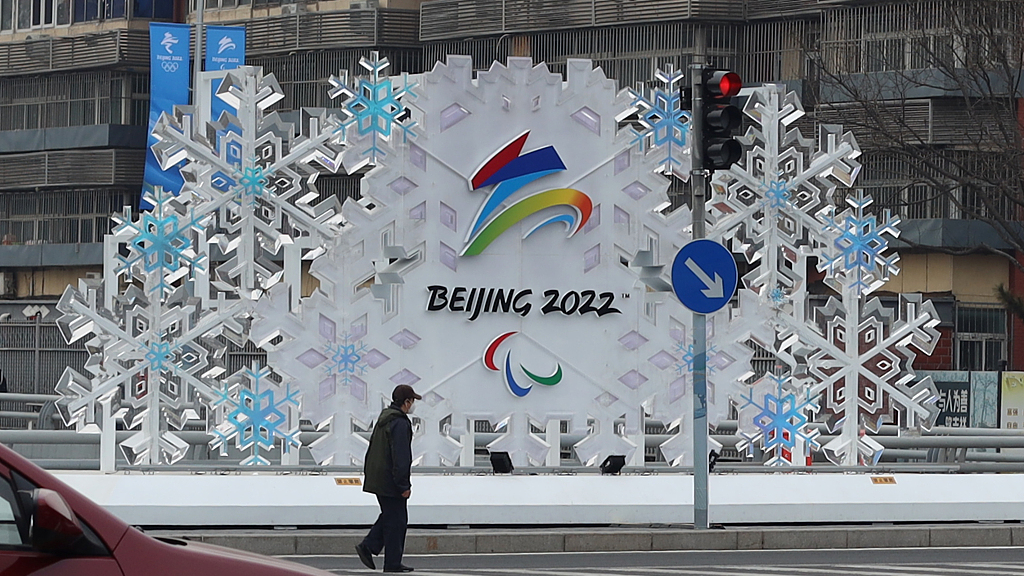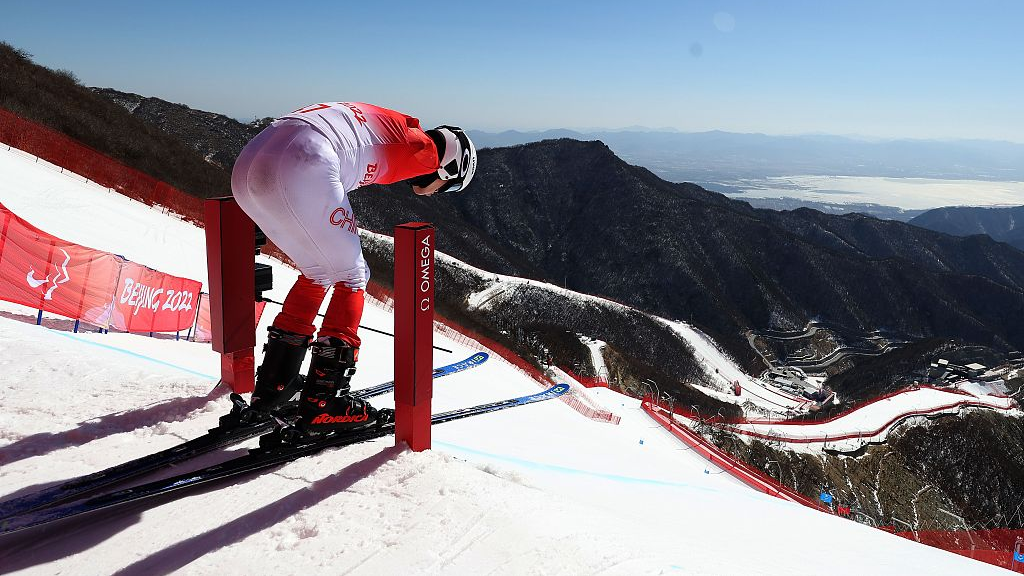
Logo of the Beijing 2022 Winter Paralympics. /CFP
Logo of the Beijing 2022 Winter Paralympics. /CFP
Editor's note: Anthony Moretti is an associate professor at the Department of Communication and Organizational Leadership at Robert Morris University. The article reflects the author's opinions and not necessarily those of CGTN.
The Olympic spirit continues in Beijing. Just a few days removed from hosting the highly acclaimed Winter Olympics, the Chinese capital welcomes more than 600 athletes around the world to the Paralympic Winter Games, which run from March 4-13.
A total of 78 events will be contested. These events will be staged at six venues in the three competition zones - Beijing, Yanqing and Zhangjiakou – familiar to those of us who watched the Winter Olympics broadcast – also will stage selected events.
The International Olympic Committee (IOC) deserves accolades for endorsing the importance of this competition. In 2001, the IOC entered into an agreement with the International Paralympic Committee (IPC), the governing body for the Paralympics, to ensure that the Paralympics would generate more of the international respect and attention it deserves.
In fact, more than a decade earlier, the two sporting bodies agreed that the Paralympics would take place in the same year and in the same city as the Olympics. Those Games also would use the same facilities that the more widely recognized Olympics did.
Paralympic sport quickly grew after World War II. As the war was winding down, the British government opened a spinal injury center to assist wounded war veterans in their recovery. The value of sport in the rehabilitation effort became especially apparent with people inside and outside the medical community soon acknowledging that sport could also serve as a recreational component.
The next step – turning recreational sport into competitive sport – almost immediately followed. By 1948, the same year that the Summer Olympics returned after a 12-year hiatus, competitive sport for physically impaired athletes took place.
In 1960, the inaugural Summer Paralympic Games were held, bringing together about 400 athletes from roughly two-dozen countries; the initial Winter Paralympic Games followed 16 years later.
Now, the Paralympics are embedded into the broadly defined Olympic movement, and the IOC and IPC jointly work to rid the world of the tired stereotype that disabled athletes are flawed or simply deserve sympathy.

Sun Hongsheng of Team China takes part in a training session for the Men's Downhill Standing ahead of the Beijing 2022 Winter Paralympics at the National Alpine Ski Centre in Yanqing District, Beijing, China, March 1, 2022. /VCG
Sun Hongsheng of Team China takes part in a training session for the Men's Downhill Standing ahead of the Beijing 2022 Winter Paralympics at the National Alpine Ski Centre in Yanqing District, Beijing, China, March 1, 2022. /VCG
As just one example, consider the powerful impact the 2008 Paralympics had on China and then the world.
One United Nations report credits the 2008 Paralympics for a dramatic transformation in Chinese society. According to the report, the Games "triggered action by the Chinese Government to improve the lives of people with disabilities and protect their rights as equal members of society. New legislation on accessibility was passed and, in the seven years leading up to the Games, China spent more than $150 million – equivalent to the last 20 years' investment in accessible infrastructure – on making 14,000 facilities accessible throughout the country."
The report also notes that "China subsequently became one of the first signatories of the United Nations Convention on the Rights of Persons with Disabilities, an international human rights treaty that entered into force on May 3, 2008."
Put another way, China was a critically important player in convincing the global community that the disabled must no longer be seen as "the other." The country gets the chance to advance that message again in the coming days.
Sadly, there is much work still to be done.
One of the unfortunate realities is that the Paralympic Games have failed to garner more headlines primarily because media agencies believe the public is not interested in them. According to one scholar, the media in the U.S. demonstrated an attitude that suggested "the Paralympic Games were not a real competition," a terrible lack of common sense that reinforces an attitude among the public that disabled athletes are inferior to their non-disabled colleagues.
American journalists continue to show up to the Paralympic Games in far fewer numbers than reporters from other nations. Consider that in 2016, fewer than 30 accredited reporters from the U.S. covered the Paralympic Games in Rio de Janeiro.
The U.S. is not the only example where the Paralympics are seen as an afterthought on the global sports calendar; the reality is fewer journalists, regardless of the nation they call home, pay attention to the Paralympics.
The irony is that many of the narratives created by the media to build up interest in the Summer or Winter Olympics also apply to the Paralympic Games. In Beijing, there will be men and women who have overcome tremendous tragedy in order to reach this point in their athletic careers. In Beijing, there will be rivalries renewed with one athlete or team attempting to again defeat a competitor seen as an equal. In Beijing, unexpected victors will have a gold medal draped around their necks while other athletes thought to be certain winners will not reach that pinnacle.
During and after the Paralympics, we would be wise to remember this excerpt from the aforementioned UN Convention on the Rights of Peoples with Disabilities: It is incumbent on everyone to "promote, protect and ensure the full and equal enjoyment of all human rights and fundamental freedoms by all persons with disabilities, and to promote respect for their inherent dignity."
Let the Paralympic Games begin!
(If you want to contribute and have specific expertise, contact us at opinions@cgtn.com.)

